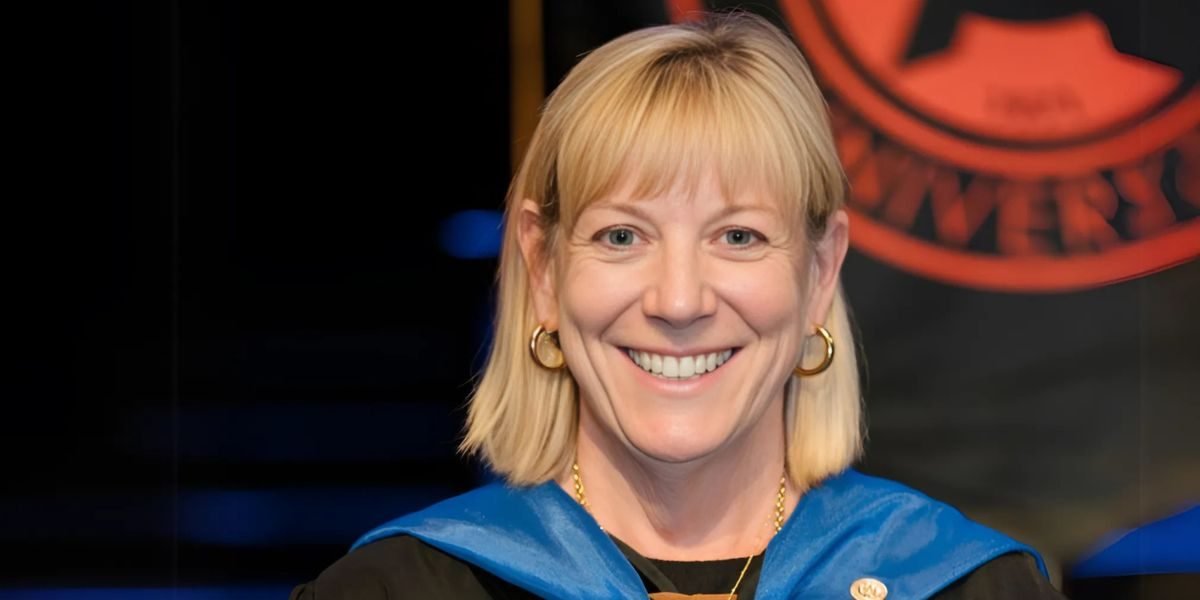By: Erik Monroe
“We’ve built a strong foundation. Now it’s time to modernize without losing what makes us unique,” says Dr. Carol A. Palmer, President of Amberton University.
In her first year as President, Dr. Palmer has introduced notable academic reforms while preserving the university’s mission to serve working adults. These changes include new degrees, the integration of AI across courses, a campus-wide update of curriculum, and a renewed focus on skills employers actively seek.
From Stability to Smart Transformation
Founded in 1971 as an extension of Abilene Christian University, Amberton quickly focused on working adult learners.
By 1982, it became an independent institution and has since operated with a simple, consistent mission: to provide relevant, ethical, and affordable education to adults with full lives.
Amberton’s former President served for 18 years and helped sustain that mission.
Dr. Palmer, now the university’s third President, brings both academic and industry experience, as well as a thoughtful plan for growth.
“I’ve worked in both higher ed and private industry,” Dr. Palmer says. “That dual perspective is exactly what our students need in this economic climate.”
100% Curriculum Update, 100% Market Relevance
Under Dr. Palmer’s leadership, Amberton has recently completed a university-wide curriculum review. Every course was updated for relevance and rigor. That included the addition of two key elements:
- Acquired skills in every syllabus
- AI competencies are embedded across all disciplines
These changes help ensure that students graduate with tangible competencies they can showcase in job applications or portfolios.
Rather than focusing solely on theoretical knowledge, Amberton works to ensure its students are well-prepared for real-world careers, equipped to demonstrate their value from day one.
New Degrees That Reflect Today’s Workforce
Four new degree programs will be introduced in Fall 2025:
- Master of Science in Applied Artificial Intelligence
- Master of Business Administration in Finance
- Master of Healthcare Administration
- Master of Science in Training & Development
These programs were developed based on feedback from industry advisors, employer partners, and faculty who are active in their respective fields. Dr. Palmer’s administration has focused on degrees that offer a clear return on investment for adult learners.
The AI and Healthcare programs, in particular, are already attracting attention.
“These aren’t abstract degrees,” Dr. Palmer explains. “They are designed for professionals addressing current workplace challenges.”
Faculty Accountability Without Tenure
Amberton remains one of the few universities that does not offer tenure. Faculty members are on renewable annual contracts. This structure means that every instructor must stay current and deliver results.
More than 95% of Amberton’s faculty hold terminal degrees. All are active practitioners who bring industry insights directly into the classroom.
“Our professors don’t just teach. They practice,” says Dr. Palmer. “That changes the classroom experience. Students are learning from people doing the work they want to do.”
The absence of tenure also helps ensure accountability. Professors are required to regularly update their courses, engage students, and maintain high teaching standards.
Embedded AI, Embedded Value
In addition to launching an Applied AI degree, Amberton has integrated artificial intelligence into every course across all disciplines.
For example:
- Business students analyze how managers use AI to streamline operations.
- Finance students use AI tools to model risk and market behavior.
- Counseling students learn ethical uses of AI in therapeutic settings.
These changes create a campus-wide AI-literate environment, making Amberton one of the few universities with a strong commitment to AI fluency across disciplines.
“This isn’t optional,” Dr. Palmer states. “AI is shaping every job. Our students will be prepared, no matter their field.”
Clearer Outcomes, Better Data
Amberton also tracks detailed student outcomes. In 2022–2023:
- 97% of students eligible for employment were employed during enrollment.
- 60% of graduates reported promotions or significant salary increases.
- 90% said their degree played a role in that advancement.
Graduation rates remain strong for working adult students. Graduate program completion rates are at 50%, well above the national average for part-time adult learners.
“Our goal is not just to enroll students,” Dr. Palmer says. “Our job is to help them finish… and thrive.”
Affordable, Transparent, and Debt-Averse
Amberton’s tuition remains among the lowest in the country for private universities. A 30-credit-hour master’s degree costs under $11,000, including fees. Even the largest 60-credit counseling programs can stay below $22,500.
The university’s cost structure is publicly posted, with no hidden fees. This clarity is intentional. Amberton avoids high-cost amenities like dormitories and athletics to keep tuition low.
“We are debt-free as a university,” Dr. Palmer explains. “That allows us to help keep our students out of debt as well.”
A Cultural Shift That Honors Its Roots
While Dr. Palmer brings change, she has also worked to preserve the university’s core values. Amberton remains a Christian institution rooted in service, ethics, and personal growth. Every employee affirms Christian principles.
However, there are no religious admission requirements.
Faculty and staff follow the university’s “Six Pillars of Service Excellence,” which include being welcoming, knowledgeable, professional, and proactive.
The Amberton Difference
Dr. Carol A. Palmer’s leadership marks a pivotal moment for Amberton University. With thoughtful program changes, new degrees, integrated AI, and a student-centered model, the institution is preparing adults not just for jobs, but for long-term success.
“We’re evolving because the world is evolving,” says Dr. Palmer. “And we’re doing it in a way that’s right for the students we serve.”
To explore Amberton’s programs, visit Amberton University













